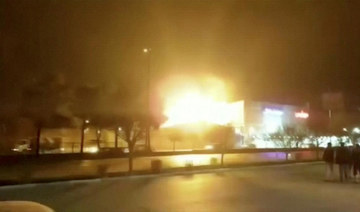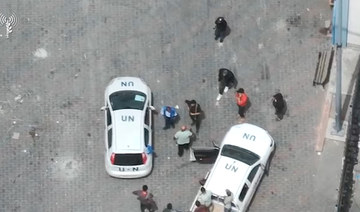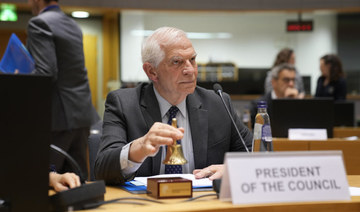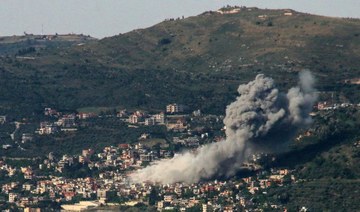IRBIL, IRAQI KURDISTAN: Barely two months in and 2023 has already proven an eventful year in the ongoing covert conflict between Israel and Iran.
Early on Sunday, an Israeli airstrike killed five people and damaged several buildings in Syria’s capital Damascus. Two Western intelligence agents cited by Reuters news agency said the attack’s target was a logistics center run by Iran’s powerful Islamic Revolutionary Guard Corps (IRGC).
The strike in the heart of Syria’s capital followed two noteworthy incidents in January. On Jan. 28, a night-time drone strike targeted a military facility in the central Iranian city of Isfahan. This was swiftly followed by another air attack the following night against a convoy of Iranian trucks that had entered Syria from Iraq.
Experts believe that Israel was most likely behind all of these covert operations.
Over the past decade, Israel has been conducting an air campaign to prevent the IRGC from transferring advanced weaponry to its regional militia proxies, particularly Hezbollah in Lebanon.
It has also sought to deny the IRGC a military foothold in Syria. In fact, the Al-Qaim border crossing between Iraq and Syria, the site of the Jan. 29 attack, is an area frequently targeted in such strikes.
Israel is also thought to have been behind a series of covert strikes and acts of sabotage against drone- and missile-production facilities inside Iran and the country’s nuclear program.
Furthermore, it is the prime suspect in the assassination of senior Iranian nuclear scientists, most notably Mohsen Fakhrizadeh, killed in November 2020 in a road ambush near Tehran, allegedly involving an autonomous satellite-operated gun.
The flurry of strikes in 2023 may signal that Israel is accelerating and intensifying these concurrent campaigns at a time of changing geopolitical priorities.
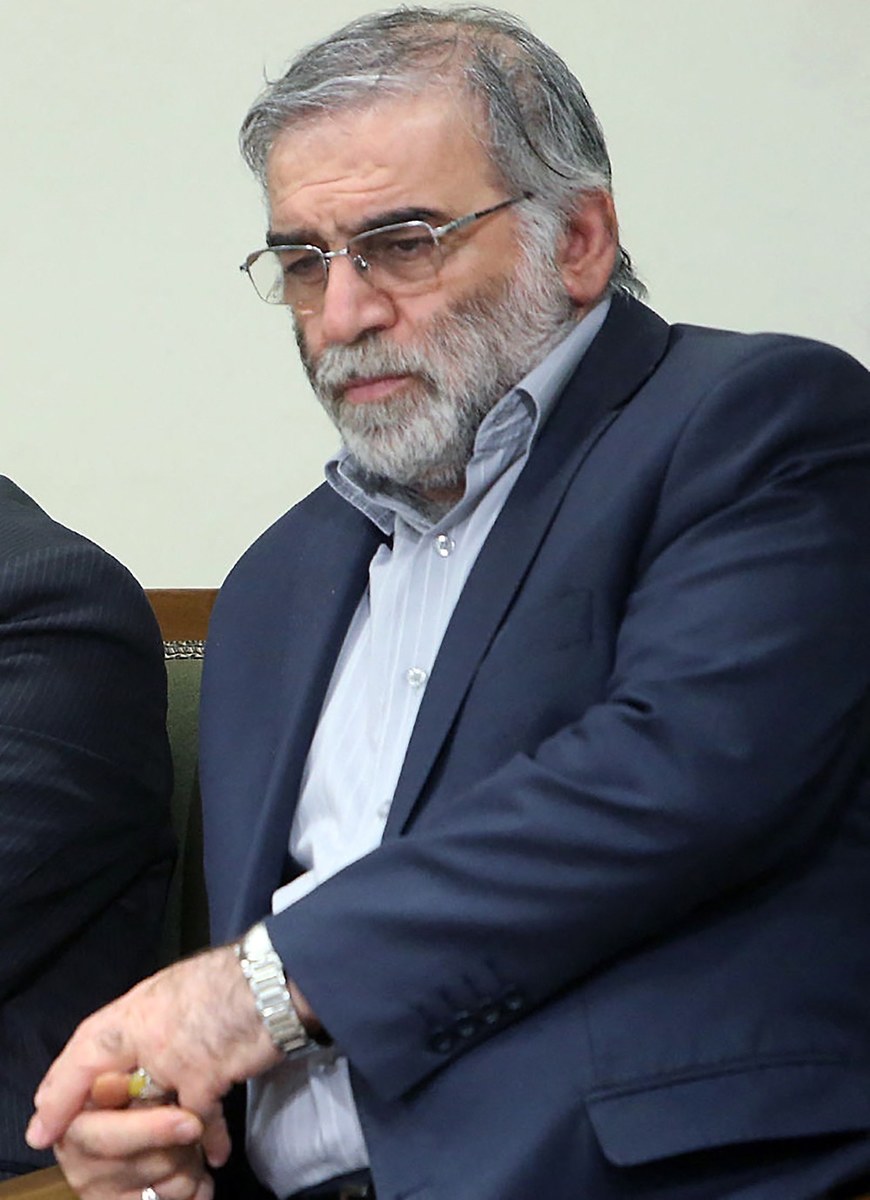
Iranian scientist Mohsen Fakhrizadeh during a meeting with the Iranian supreme leader (unseen) in Tehran, on January 23, 2019. (AFP)
The 2015 Iran nuclear deal, formally known as the Joint Comprehensive Plan of Action, which sought to curb Iran’s uranium enrichment in return for sanctions relief, is all but dead, despite the best efforts of the Biden administration and its European allies.
Far from reining in its nuclear program, Tehran has stepped up uranium enrichment to the point that it can build “several” nuclear weapons if it chooses, according to Rafael Mariano Grossi, director general of the International Atomic Energy Agency.
“One thing is true: They have amassed enough nuclear material for several nuclear weapons, not one, at this point,” Grossi told European lawmakers on Jan. 24. “They have 70 kilograms (155 pounds) of uranium enriched at 60 percent ... The amount is there. That doesn’t mean they have a nuclear weapon. So, they haven’t proliferated yet.”
He also noted that the level of enrichment “is long past” the point that Israeli Prime Minister Benjamin Netanyahu warned about back in 2012.
At the UN that year, Netanyahu famously held up a card featuring a cartoon bomb to illustrate how much highly enriched uranium Iran needed before it could build a bomb.
Given this context, and Netanyahu’s return to office at the helm of a shaky new coalition with a hard-right constituency, further attacks across Iran and the wider region are a strong possibility in the coming weeks and months.
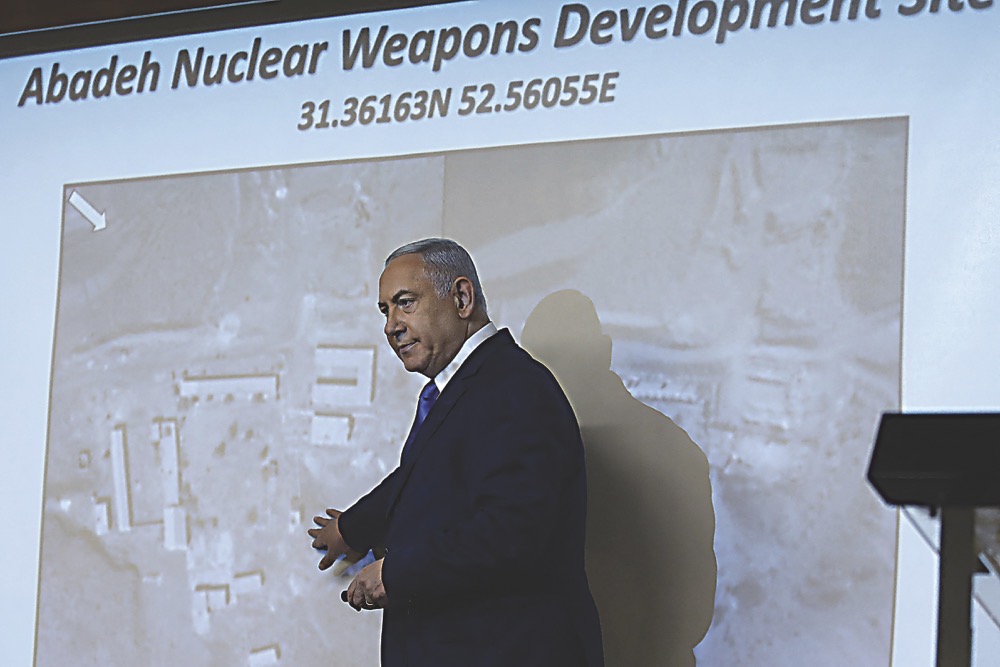
Given the recent return to power of Israeli PM Benjamin Netanyahu — pictured in 2019 talking about Iran’s nuclear research — as head of a far-right coalition government, some analysts think it likely Israel will step up its attacks on Iran. (AFP)
“To me, both attacks are the continuation of Israel’s long-range interdiction campaign to prevent Iran from (fully) weaponizing Syria and Hezbollah and achieving a nuclear weapons capability,” Farzin Nadimi, a defense and security analyst and associate fellow at the Washington Institute for Near East Policy, told Arab News.
“The timing might be by accident, but I would not be surprised to learn that the production hall that was attacked in Isfahan was somehow involved in Hezbollah’s precision munitions program or fabrication of components for Iran’s nuclear program.
“This was the policy of previous Israeli administrations and will continue to be the priority of current and future Israeli governments.”
Nadimi predicts that these attacks will likely increase “in size and numbers” since “the Iranian regime is expected to accelerate all its offensive deterrent programs in the future.”
Despite an “ever-existing risk of escalation at any moment,” he is unsure whether there could be an all-out war between Israel and Iran in 2023. Nevertheless, he believes “a serious exchange before 2025 is a possibility.”
Nicholas Heras, senior director of strategy and innovation at the New Lines Institute, believes a military confrontation is inevitable if Iran moves to produce a nuclear weapon.
“We are approaching midnight before a region-wide war between Iran and Israel and the US breaks out,” he told Arab News.
“Israel, with US support, is sending a clear signal to Iran that there is a military option on the table to bring a war to Iranian soil if Iran decides to build nuclear weapons.”
In hindsight, Heras said: “It is clear that the calculations in Washington have changed and that there is a growing sense that Netanyahu might be right that only the credible threat of war will stop Iran from going for the bomb.”
Israel’s actions are part of a broader effort to pre-empt Iran’s attempt to weaponize its proxies in Lebanon, Syria and the Gaza Strip.
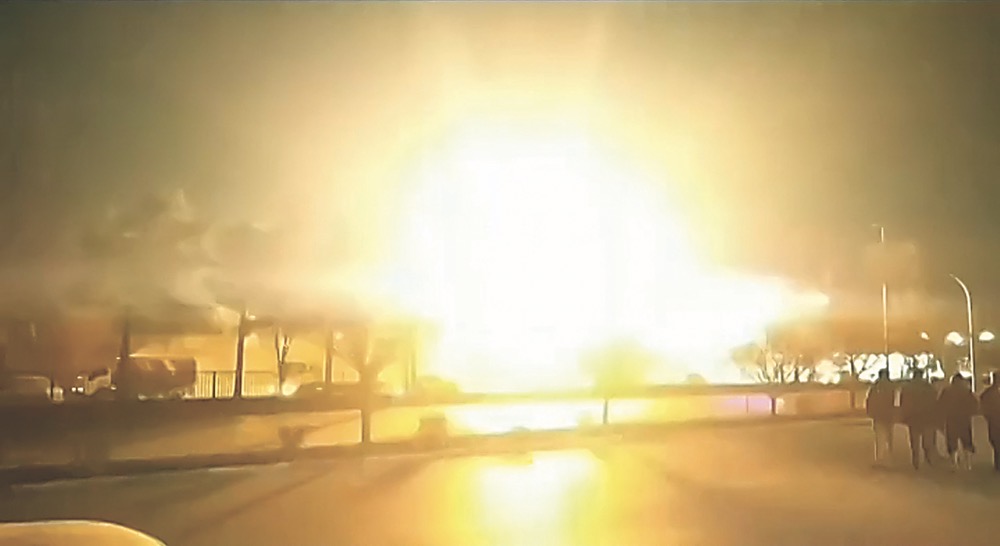
An image from a video that reportedly shows a drone attack on an Iranian military site in Isfahan province on Jan. 28. Experts believe Israel was probably behind this and the other recent attack on an Iranian target, in Syria. (AFP)
“With ongoing uncertainty in the West Bank, and Netanyahu’s coalition partners pushing for the annexation of Palestinian land, Netanyahu is trying to refocus his political allies in Israel on Iran,” Heras said.
“Netanyahu sees Iran, and the Iranian weapons programs, especially AI and advanced missiles, as the strategic threat to Israel.”
Kyle Orton, an independent Middle East analyst, views the latest strikes as part of the “new normal” of low-level warfare between Israel and Iran and an extension of the Syria air campaign.
“The Israeli operation in Isfahan looks to have been mostly symbolic, a statement from Israel’s new government, primarily to its domestic audience,” he told Arab News. “The evidence available suggests there was not much damage, so whatever was destroyed will cause minimal disruption.”
Orton also questions whether the Israeli campaign has inflicted any serious or lasting damage on Iran and its proxies, pointing out that Israel has struck many of the same targets in Syria multiple times to negligible effect.
“The focus on physical infrastructure with the Israeli strikes, and only occasionally on IRGC officials and scientific staff in the nuclear program, means Iran’s regime can easily regenerate what is lost,” he said.
While Israel has extensively infiltrated the Iranian intelligence apparatus, to the extent that it has neutralized the foreign operations of the IRGC and established a broad reach inside Iran, Orton says that it nevertheless continues to lose ground “at a strategic level.”
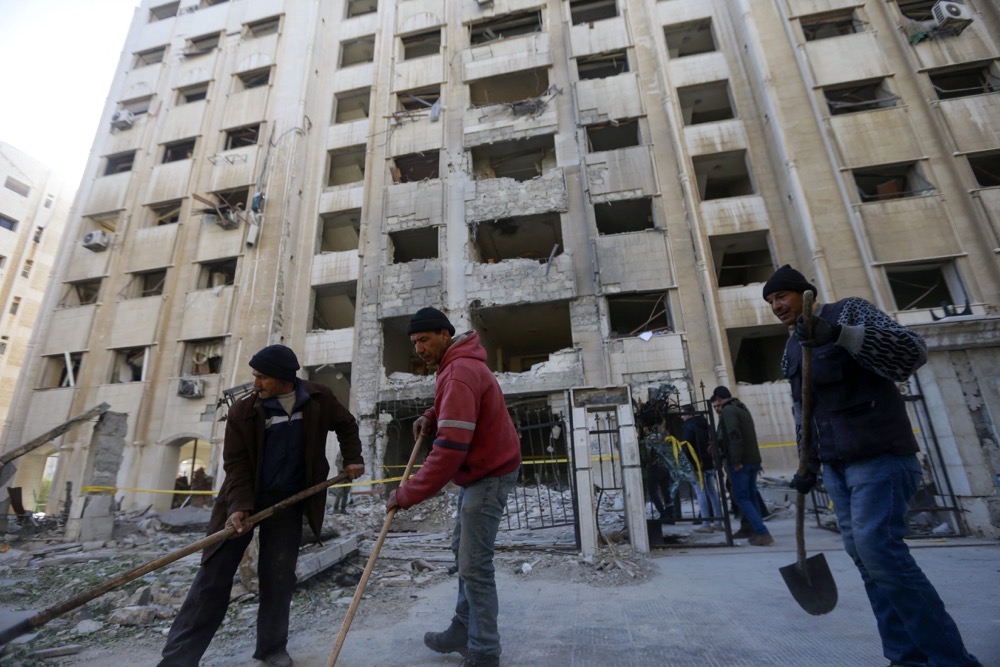
People shovel debris at the scene of a reported Israeli missile strike in Damascus, on February 19, 2023. (AFP)
In his view, Iran has already entrenched itself in Syria to the point that it cannot be removed. He also is unimpressed by “the continued Israeli belief that Russia is ‘allowing’ them to strike at Iran in Syria, rather than being incapable of stopping them.”
He described this as a “dangerous delusion” with a ripple effect that has damaged Israel’s political relations with the US and Europe since it is “holding up this ‘understanding’ with Russia as an explanation for doing so little over Ukraine.”
Iran’s entrenchment in Syria is not the only area in which it is challenging Israel. On Feb. 10, a suspected Iranian drone targeted an Israeli-linked commercial shipping tanker in the Arabian Sea.
The attack on the Liberian-flagged oil tanker linked to Israeli billionaire Eyal Ofer, which caused minor damage, was viewed by observers of the “shadow war” as a salvo from the Iranian side.
“Iran also continues to be dominant in Iraq, Lebanon, Gaza and Yemen, with threatening and growing outposts of the (Islamic) revolution in Bahrain, Afghanistan and West Africa,” Orton said.
In effect, this has left Israel “sharing three borders with Iran,” he added.
In Lebanon, Syria and Gaza, the IRGC has also been building up the quantity and quality of the weapons systems it has supplied its proxies.
For example, as part of its precision-munitions program, the IRGC has been upgrading Hezbollah’s large arsenal of missiles in Lebanon so the group can accurately strike specific targets.
As a result, according to Orton, these groups could potentially “inflict catastrophic damage” on Israel in retaliation for airstrikes against Iran’s nuclear program.
“At some point, this might well be a sufficient deterrent to prevent Israel even contemplating such an attack,” he said.
“It has to be admitted that the moment where Israel could militarily stop Iran from acquiring the bomb has probably already passed. The Iranians have not formally crossed the nuclear threshold, i.e., carried out a test explosion, more for political reasons than technical ones.”
In the meantime, Heras says, Iran will continue embarking on “a clandestine campaign to ramp up pressure on the US in Iraq and to strike at Israeli assets in the region and globally.”






